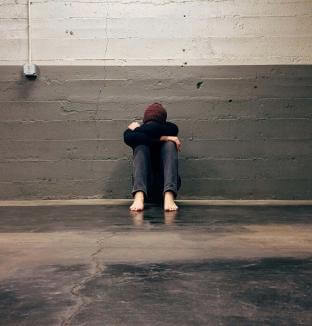Freeing yourself from OCD: a difficult but possible path
With 2-3% of the population affected[1], obsessive-compulsive disorder (OCD) is one of the most common mental disorders. Poorly understood by the general public, OCD plunges sufferers into a constant internal struggle, between intrusive thoughts and rituals designed to soothe their anxiety. Behind these mechanisms, lives are turned upside down, like that of Marie (her named was changed), who talks here about her daily life and her therapy. Her account is enlightened by the expertise of Dr Nicolas Gouiller, coordinating psychiatrist at the Lyon Lumière clinic in Meyzieu (France).
Comprendre les TOC : entre obsessions et compulsions
Marie suffers from contamination OCD. "OCD can mean washing my hands very frequently, showering several times a day, not touching certain surfaces, and no longer wearing perfume or cream," she explains. Her disorder makes her avoid anything that could be perceived as a source of contamination, not only for herself, but also for fear of contaminating a vulnerable person. “It's a dictatorship of anti-contamination, she sums up. It's synonymous with anxiety, shame and exhaustion.”
A multifaceted disorder
Intrusive thoughts, uncontrollable rituals, omnipresent anxiety... Obsessive-compulsive disorder (OCD) can take many forms and have a major impact on daily life. "An obsession is an intrusive thought that imposes itself on the mind and generates anxiety. A compulsion is a repetitive behaviour, a ritual put in place to relieve this anxiety. When this compulsion disrupts daily life, we speak of a disorder," explains Dr Nicolas Gouiller.
The best-known OCDs include checking OCDs (checking ten times to make sure the door is closed or the gas turned off) and contamination OCDs (washing your hands to the point of irritation). But other forms also exist: harm or misfortune OCD, where a ritual is performed to avoid a dramatic event, compulsive hoarding, counting or impulse phobias, where the individual fears committing a violent or immoral act.
The origin of OCD is multifactorial, and sometimes remains mysterious. "Some patients have a family predisposition, or experience triggers such as intense stress, trauma or a significant event, explains the specialist. A person with an anxious temperament may develop washing OCD after a burglary, for example".

A major impact on daily life
OCD is an invisible but omnipresent suffering. “It has an impact on everyday life at every level: personal, professional and social, says Dr Gouiller. Often very slow because of the ritual of checking, some people can no longer work or are recognised as disabled workers".
As a result of her OCD, Marie experienced severe family tensions, the loss of her job, social isolation, repeated anxiety attacks, etc. "My life was reduced to fear and rituals, I was a prisoner of myself. My life consisted of fear and rituals, I was a prisoner of myself".
Living with someone who suffers from OCD is a constant challenge for those around them: should they take part in the rituals to avoid crises, which tends to reinforce the disorder, or should they oppose them at the risk of causing conflict? Marie confirms these difficulties: "My family and friends support me, but they can find themselves at a loss. They don't understand why I keep washing my hands despite the cracks and the pain, why I exhaust myself with these rituals instead of doing sport... OCD puts a lot of pressure on them".

OCD: demanding but effective treatments
Diagnosis of OCD is based on a clinical interview. “We use an assessment scale to measure the severity of the disorder and its impact on the patient's life, and we look for associated comorbidities (depression, phobias), explains Dr Gouiller. Diagnosis can be difficult for atypical OCD, and the lack of psychiatrists in France doesn't make things any easier," he adds.
Treatment requires lengthy hospitalisation and is mainly based on cognitive behavioural therapy (CBT), which involves gradually exposing the person to their fears without them being able to carry out their rituals, in order to 'reprogram' their brain. Antidepressants are often necessary, and innovative approaches such as deep brain stimulation are used in the most severe cases.
Hospitalised at the Lyon Lumière clinic for several weeks, Marie is following a personalised treatment programme: psycho-education, exposure and response prevention (ERP), magnetic wave stimulation, discussion groups, art therapy, sport, etc. "I'm gradually regaining my self-confidence, with the help of the very patient and caring medical team, she confides. I'm gradually regaining my self-confidence, with the help of a very patient and caring medical team," she says.

A long road to recovery
Can obsessive-compulsive disorder (OCD) really be cured? Dr Gouiller's answer is nuanced: "We talk more about recovery, when the patient returns to a satisfactory state that allows them to go about their daily lives". According to him, a third of patients make a good recovery, another third relapse and the final third fail treatment. But there is still hope. "The important thing is not to face the disease alone. There are solutions, and the earlier we act, the more effective they are," insists the specialist.
It was this approach that enabled Marie to regain control over her disorder. "The OCD is still there, but I no longer define myself by it. I've learnt to dissociate myself from my obsessive thoughts, to stop letting them dictate my actions. It's a daily battle, but each small victory brings me closer to a freer life.

